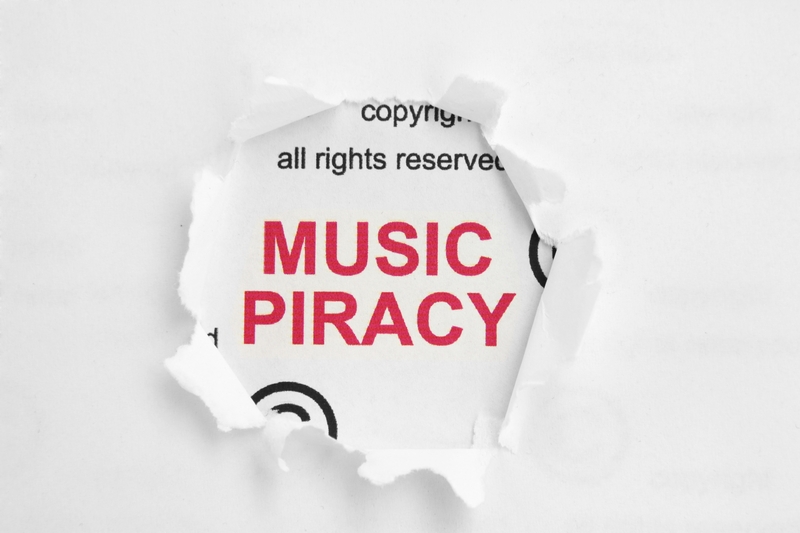Music Sets You Free, for a Fee
By Andy Tiwari

An old story goes that a famous musician dined at a restaurant, heard his music playing, and refused to pay the bill. When the restaurant owner asked the musician if he did not enjoy the aroma of the meal, the atmosphere, and food itself, the musician in turn advised they had not paid for his music, yet did the restaurant not enjoy his songs and the mood it set?
This story illustrates an ongoing and often misunderstood conflict between those that use and play music while selling other goods and those that write, perform, and sell music. The general rule is this: music isn’t free. If you are playing music in a public venue, which sells items, you are using the music for commercial purposes and must pay a fee to play it.
In a modern setting, musicians have help policing their rights in the form of copyright laws and performing right organizations (“PROs”) such as Broadcast Music Inc. (BMI), SESAC, American Society of Composers, Authors and Publishers (ASCAP), and SoundExchange. BMI, SESAC and ASCAP control performance rights for the vast majority of known music.
It’s hardly a secret BMI and ASCAP have aggressively pursued violations of performance rights: the National Restaurant Association and Texas Governor’s Office have information on how to avoid getting sued for playing music at a bar or restaurant. PROs are known to investigate venues large and small undercover in order to obtain evidence in the process.
A recent Google search revealed numerous copyright lawsuits across the country, and I routinely field questions about BMI and ASCAP from bar and restaurant owners. For example, a Connecticut-based Italian restaurant agreed to pay BMI $18,000 in a settlement over nine songs it played at its eatery. A North Carolina restaurant paid about $30,000 in a BMI lawsuit, and several years ago, a Florida restaurant paid about $36,000 to BMI regarding 12 copyrighted songs cover bands had performed at its eatery. Many venue owners seemed unaware of music licensing and took lightly the probability of being sued by a PRO. While the headlines negatively portray PROs, and the damages awarded shock the conscience, most of the bars and restaurants sued likely ignored multiple notices that preceded the lawsuit. Ultimately, the PROs want voluntary compliance, not lawsuits.
So does this apply to your bar or restaurant? As a general rule, yes. When you download or stream a music file, you’re only obtaining the personal right to play music, such as in your car or at your house. You have to pay separately for the public right, like playing it at your restaurant. Playing music publicly ranges from hiring a band or DJ and playing music over speakers to karaoke and even re-broadcasting music from the radio.
To avoid being sued from multiple PROs, it’s best to obtain a blanket license from each. While it is possible to work with only one PRO by scanning the music databases of BMI, ASCAP, SESAC, and SoundExchange, it is unlikely you will protect yourself doing so. If you slip up and play an artist who isn’t part of the database you pay for, you just opened the door for a copyright infringement lawsuit. In theory, you can get away with having your cousin’s seven-piece kazoo band playing original music that isn’t registered with a PRO but, well, good luck with that.
But what about the exceptions, you ask? Ok, the rules are a bit nuanced when it comes to using TVs and radio. For instance, if you are playing music in your bar/restaurant via TVs or the radio, and your venue is smaller than 3,750 “gross” square feet (including bathrooms, storage, kitchen, etc.), and you don’t have a cover charge, then congratulations – you don’t need a license. There are other exceptions, which are outside the scope of this article, and the National Restaurant Association’s website is a good resource.
There are also alternatives to directly registering with the PROs. Commercial music services like MUZAK and Mood take care of performance right licensing for you, as do most commercial jukeboxes. If you set up a commercial Pandora or satellite radio account, you’ll also generally be protected.
Even if you are not a restaurant or bar owner but want to play music for your customers on hold on the phone, you still could be violating copyright law (which explains the quality of most on-hold music). What’s the bottom line? If you are playing music while selling something, paying a licensing fee is better than paying tens of thousands of dollars in litigation costs.
If you need legal advice, schedule a meeting with Tiwari + Bell PLLC through our website or by calling (210) 417-4167.
